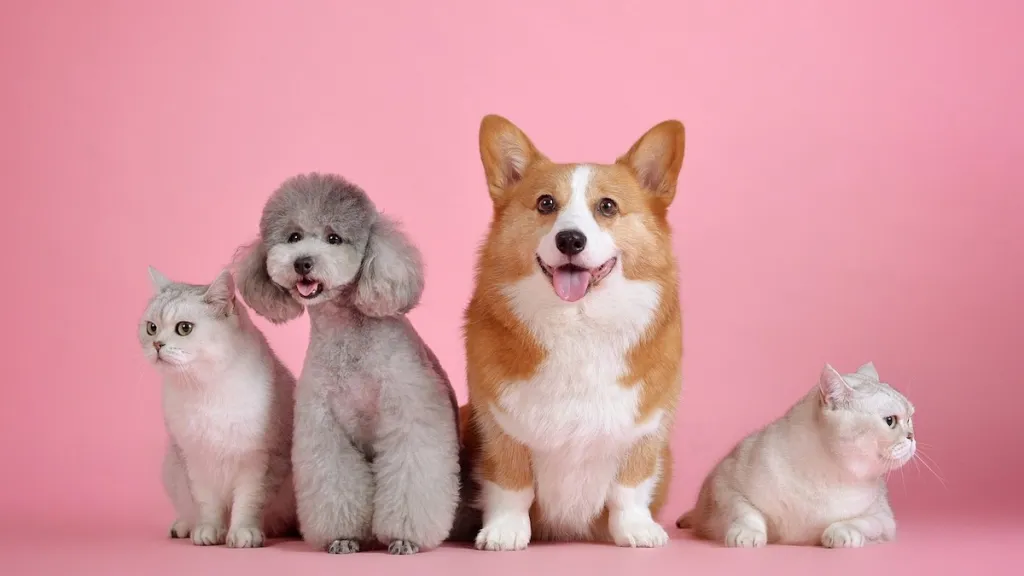When Akhil found out that a pet dog had become the heir to his billionaire deceased father’s properties, he took up the job of the animal’s caretaker. But in the guise of taking care, he conspired to kill the dog along with Jugnu, a friend, even as the animal was expected to die a natural death in a couple of years.
The above is not a real story but the plot of a Bollywood comedy movie, ironically named ‘Entertainment’. Though the dog in the movie didn’t die amid a series of comic events, in real life, however, dogs and other pets are literally thrown to the streets or even killed when their human parents die.
Raising a pet is becoming common across the country these days. Pets are not only being treated as children but their human parents are also spending a lot of money for their well-being. For example, it is estimated that anywhere between Rs 50,000 to Rs 1 lakh is required to be spent on a pet dog in metropolitan cities on expenses such as food, vaccination, vet visits, grooming etc.
Vishnu Chundi, Founder and CEO of AasaanWill, says he has come across various clients who have decided not to have children but adopted pets. “There are many technology sector workers in Bengaluru and other metropolitan cities, in their late 30s or early 40s, who have decided not to have children by choice. But they have decided to adopt pets. These pets are essentially family to them. These are very well-educated people, couples running large corporations, who want the best for their pets.”
While everything remains good for pets as long as their human parents or guardians are alive, the worst often becomes imminent upon the latter’s death.
What happens to pets when the owner dies without a Will
Vishnu says if somebody dies without a Will then the pet is treated just like other assets such as a car or a house in the eyes of the law.
However, it gets more complicated in the case of pets as they are not objects; they are living and emotional beings.
According to the Indian Succession Act, if a Hindu man dies without a Will, 1/3rd of that person’s total self-acquired wealth goes to his mother, 1/3rd to his wife and 1/3rd to all the children together. But the big question as to who will take care of the pet remains.
Generally, when the owner dies without a Will then the intestacy laws of India come into the picture. The court appoints an executor for the deceased in such cases.
Let us say somebody dies with a total net worth of Rs 3 crore to Rs 5 crore. The court will say this person died intestate and appoint an executor who will have the responsibility to ensure 1/3rd goes to the mother, 1/3rd to the wife, and 1/3rd to the children. After that, the executor will discuss with these three stakeholders whether anyone wants to take care of the pet. “At this point, it becomes more of an opt-in or voluntary mechanism as opposed to the legal mechanism based on the wishes of the deceased owner,” says Vishnu.
Therefore, when pets are not included in the Will, there remains a lot of uncertainty as to who will take care of them when the owner passes away.
If no one comes forward to take care of the pet then it is likely to become homeless or taken away by animal rescue organisations like Blue Cross.
Vishnu says he has noticed some horrible cases where people actually send the pets for euthanasia. “Because there is nobody to take care of, they actually get the pet killed.”
From the animal’s perspective, it is very tragic, especially in the case of pets such as dogs whom people raise as children, rewarding them for good behaviour and punishing them for behaving badly.
Also Read: Succession Planning: Appoint a nominee, and then write a will
What can pet owners do?
Pet owners should name a pet guardian in their Will and clearly mention provisions for the wellbeing of the animal. They should mention the amount allocated for this purpose and, most importantly, the name of the person who would serve as the pet guardian upon their death. For backup, they should also name a secondary guardian in the Will itself.
“Ideally, one should appoint as pet guardian someone who has a bond with the pet. As this is a very unique kind of asset, according to law, where the asset actually has feelings and consciousness, the guardian should be someone whom the pet already knows and likes,” says Vishnu.
The pet’s new guardian will be responsible for providing food, shelter, veterinary care and most importantly companionship. Therefore, that person should be someone whom you can trust.
“You can also take care of the financial commitment in the Will by giving this pet guardian a sufficient amount as a gift. The guardian needs to be somebody who is trustworthy. More so because it is very hard to enforce the spending of this amount and there are no other actors who can check whether this money is being spent or not,” adds Vishnu.
Read Next: How to Write a Will for Your Pet (to be published on Tuesday, August 7, 2023)

